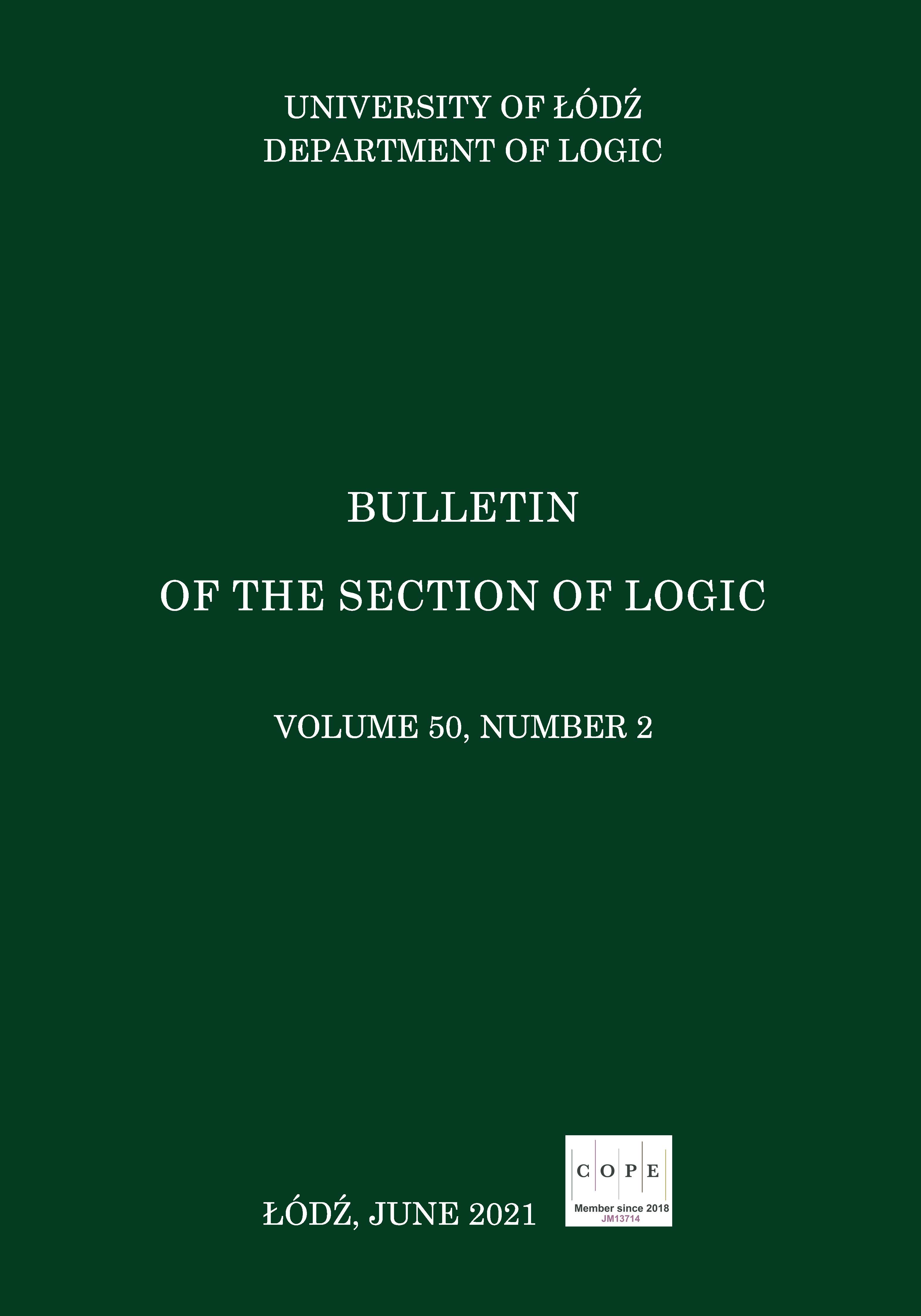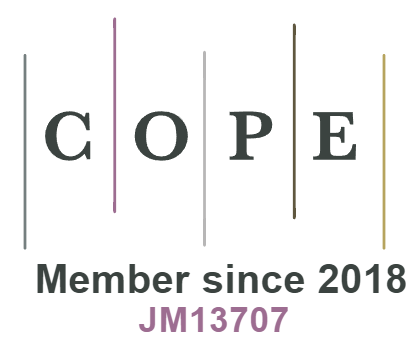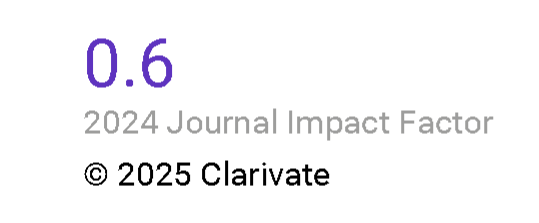Common Knowledge, Common Attitudes and Social Reasoning
DOI:
https://doi.org/10.18778/0138-0680.2021.04Keywords:
common knowledge, belief, nonmonotonic logic, practical reasoningAbstract
For as long as there have been theories about common knowledge, they have been exposed to a certain amount of skepticism. Recent more sophisticated arguments question whether agents can acquire common attitudes and whether they are needed in social reasoning. I argue that this skepticism arises from assumptions about practical reasoning that, considered in themselves, are at worst implausible and at best controversial. A proper approach to the acquisition of attitudes and their deployment in decision making leaves room for common attitudes. Postulating them is no worse off than similar idealizations that are usefully made in logic and economics.
References
[1] R. J. Aumann, Agreeing to Disagree, Annals of Statistics, vol. 4(6) (1976), pp. 1236-1239, DOI: https://doi.org/10.1214/aos/1176343654
Google Scholar
DOI: https://doi.org/10.1214/aos/1176343654
[2] S. Bucheli, R. Kuznets, T. Studer, Justifications for Common Knowledge, Journal of Applied Non-Classical Logics, vol. 21(1) (2011), pp. 35-60, DOI: https://doi.org/10.3166/jancl.21.35-60
Google Scholar
DOI: https://doi.org/10.3166/jancl.21.35-60
[3] H. H. Clark, C. R. Marshall, Definite Reference and Mutual Knowledge, [in:] A. Joshi, B. Webber, I. Sag (eds.), Elements of Discourse Understanding, Cambridge University Press, Cambridge, England (1981), pp. 10-63.
Google Scholar
[4] H. H. Clark, M. Schober, Understanding by Addressees and Overhearers, Cognitive Psychology, vol. 21(2) (1989), pp. 211-232.
Google Scholar
DOI: https://doi.org/10.1016/0010-0285(89)90008-X
[5] M. A. Dummett, Wang's Paradox, [in:] R. Keefe, P. Smith (eds.), Vagueness: A Reader, The MIT Press, Cambridge, Massachusetts (1997), pp. 99-118.
Google Scholar
[6] J. Geanakoplos, Common Knowledge, [in:] R. Aumann, S. Hart (eds.), Handbook of Game Theory, with Economic Applications, chap. 40, vol. 2, North-Holland, Amsterdam (1994), pp. 1437-1496, DOI: https://doi.org/10.1016/S1574-0005(05)80072-4
Google Scholar
DOI: https://doi.org/10.1016/S1574-0005(05)80072-4
[7] P. N. Johnson-Laird, Mutual Ignorance: Comments on Clark and Carlson's Paper, [in:] Mutual Knowledge, Academic Press, London (1982), pp. 40-45.
Google Scholar
[8] H. Lederman, Common Knowledge, [in:] M. Jankovic, K. Ludwig (eds.), The Routledge Handbook of Collective Intentionality, Routledge, New York (2017), pp. 181-195.
Google Scholar
DOI: https://doi.org/10.4324/9781315768571-18
[9] H. Lederman, Uncommon Knowledge, Mind, vol. 127(508) (2017), pp. 1069-1105, DOI: https://doi.org/10.1093/mind/fzw072
Google Scholar
DOI: https://doi.org/10.1093/mind/fzw072
[10] H. Lederman, Two Paradoxes of Common Knowledge: Coordinated Attack and Electronic Mail, Noûs, vol. 52(4) (2018), pp. 921-945, DOI: https://doi.org/10.1111/nous.12186
Google Scholar
DOI: https://doi.org/10.1111/nous.12186
[11] D. K. Lewis, Convention: A Philosophical Study, Harvard University Press, Cambridge, Massachusetts (1969), DOI: https://doi.org/10.1002/9780470693711
Google Scholar
DOI: https://doi.org/10.1002/9780470693711
[12] V. Lifschitz, Circumscriptive Theories: A Logic-Based Framework for Knowledge Representation, Journal of Philosophical Logic, vol. 17(3) (1988), pp. 391-441, DOI: https://doi.org/10.1007/BF00297512
Google Scholar
DOI: https://doi.org/10.1007/BF00297512
[13] M. Merritt, G. Taubenfeld, Knowledge in Shared Memory Systems, Distributed Computing Archive, vol. 7 (1991), pp. 99-109, DOI: https://doi.org/10.1007/BF02280839
Google Scholar
DOI: https://doi.org/10.1007/BF02280839
[14] S. Morris, H. S. Shin, Approximate Common Knowledge and Co-ordination: Recent Lessons from Game Theory, Journal of Logic, Language, and Information, vol. 6(2) (1997), pp. 171-190, DOI: https://doi.org/10.1023/A:1008270519000
Google Scholar
DOI: https://doi.org/10.1023/A:1008270519000
[15] D. G. Novick, K. Ward, Mutual Beliefs of Multiple Conversants: a Computational Model of Collaboration in Air Traffic Control, [in:] R. Fikes, W. Lehnert (eds.), Proceedings of the Eleventh National Conference on Artificial Intelligence, American Association for Artificial Intelligence, AAAI Press, Menlo Park, California (1993), pp. 196-201.
Google Scholar
[16] P. Panangaden, K. Taylor, Concurrent Common Knowledge: Defining Agreement for Asynchronous Systems, Distributed Computing, vol. 6(2) (1992), pp. 73-94, DOI: https://doi.org/10.1007/BF02252679
Google Scholar
DOI: https://doi.org/10.1007/BF02252679
[17] C. Paternotte, The Fragility of Common Knowledge, Erkenntnis, vol. 82 (2017), pp. 451-472, DOI: https://doi.org/10.1007/s10670-016-9828-4
Google Scholar
DOI: https://doi.org/10.1007/s10670-016-9828-4
[18] A. Rubinstein, The Electronic Mail Game: Strategic Behavior Under 'Almost Common Knowledge', American Economic Review, vol. 79(3) (1989), pp. 385-391.
Google Scholar
[19] S. Schiffer, Meaning, Oxford University Press, Oxford (1972).
Google Scholar
[20] S. Schiffer, Remnants of Meaning, The MIT Press, Cambridge, Massachusetts (1987).
Google Scholar
[21] H. A. Simon, Rational Choice and the Structure of the Environment, Psychologicial Review, vol. 63(2) (1956), pp. 129-138, DOI: https://doi.org/10.1037/h0042769
Google Scholar
DOI: https://doi.org/10.1037/h0042769
[22] D. Sperber, D. Wilson, Mutual Knowledge and Relevance in Theories of Comprehension, [in:] N. Smith (ed.), Mutual Knowledge, Academic Press, London (1982), pp. 61-85.
Google Scholar
[23] D. Sperber, D. Wilson, Relevance: Communication and Cognition, 1st ed., Harvard University Press, Cambridge, Massachusetts (1986).
Google Scholar
[24] D. Sperber, D. Wilson, Relevance: Communication and Cognition, 2nd ed., Blackwell, Oxford (1995).
Google Scholar
[25] R. Stalnaker, Common Ground, Linguistics and Philosophy, vol. 25(5-6) (2002), pp. 701-721, DOI: https://doi.org/10.1023%2FA%3A1020867916902
Google Scholar
DOI: https://doi.org/10.1023/A:1020867916902
[26] R. H. Thomason, The Multiplicity of Belief and Desire, [in:] M. P. Georgeff, A. Lansky (eds.), Reasoning about Actions and Plans, Morgan Kaufmann, Los Altos, California (1987), pp. 341-360.
Google Scholar
DOI: https://doi.org/10.1016/B978-0-934613-30-9.50017-2
[27] R. H. Thomason, Propagating Epistemic Coordination Through Mutual Defaults I, [in:] R. Parikh (ed.), Theoretical Aspects of Reasoning about Knowledge: Proceedings of the Third Conference (TARK 1990), Morgan Kaufmann, Los Altos, California (1990), pp. 29-39, DOI: https://doi.org/10.5555/1027014.1027022
Google Scholar
[28] R. H. Thomason, Modeling the Beliefs of Other Agents, [in:] J. Minker (ed.), Logic-Based Artificial Intelligence, Kluwer Academic Publishers, Dordrecht (2000), pp. 375-473, DOI: https://doi.org/10.1007/978-1-4615-1567-8_17
Google Scholar
[29] R. H. Thomason, The Beliefs of Other Agents (2001), http://web.eecs.umich.edu/_rthomaso/documents/nmk/otheragents.pdf
Google Scholar
DOI: https://doi.org/10.1007/978-1-4615-1567-8_17
[30] R. H. Thomason, Belief, Intention, and Practicality: Loosening Up Agents and Their Propositional Attitudes, [in:] F. Lihoreau, M. Rebuschi (eds.), Epistemology, Context, Formalism, Springer Verlag, Berlin (2013), pp. 167-184, DOI: https://doi.org/10.1007/978-3-319-02943-6_10
Google Scholar
DOI: https://doi.org/10.1007/978-3-319-02943-6_10
[31] B. C. van Fraassen, Representation of Conditional Probabilities, Journal of Philosophical Logic, vol. 5(3) (1976), pp. 417-430, DOI: https://doi.org/10.1007/BF00649400
Google Scholar
DOI: https://doi.org/10.1007/BF00649400
Downloads
Published
How to Cite
Issue
Section
License

This work is licensed under a Creative Commons Attribution-NoDerivatives 4.0 International License.















